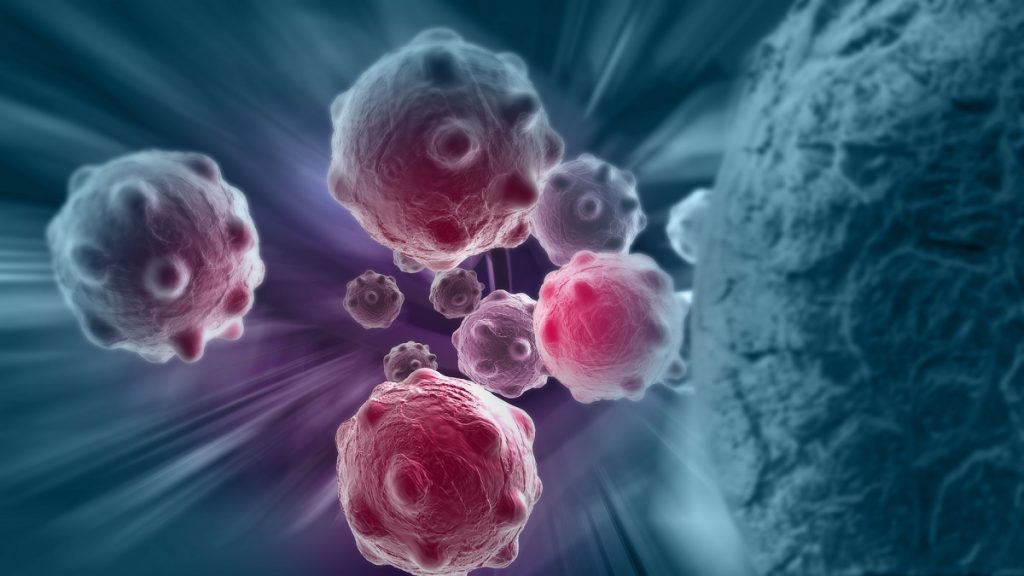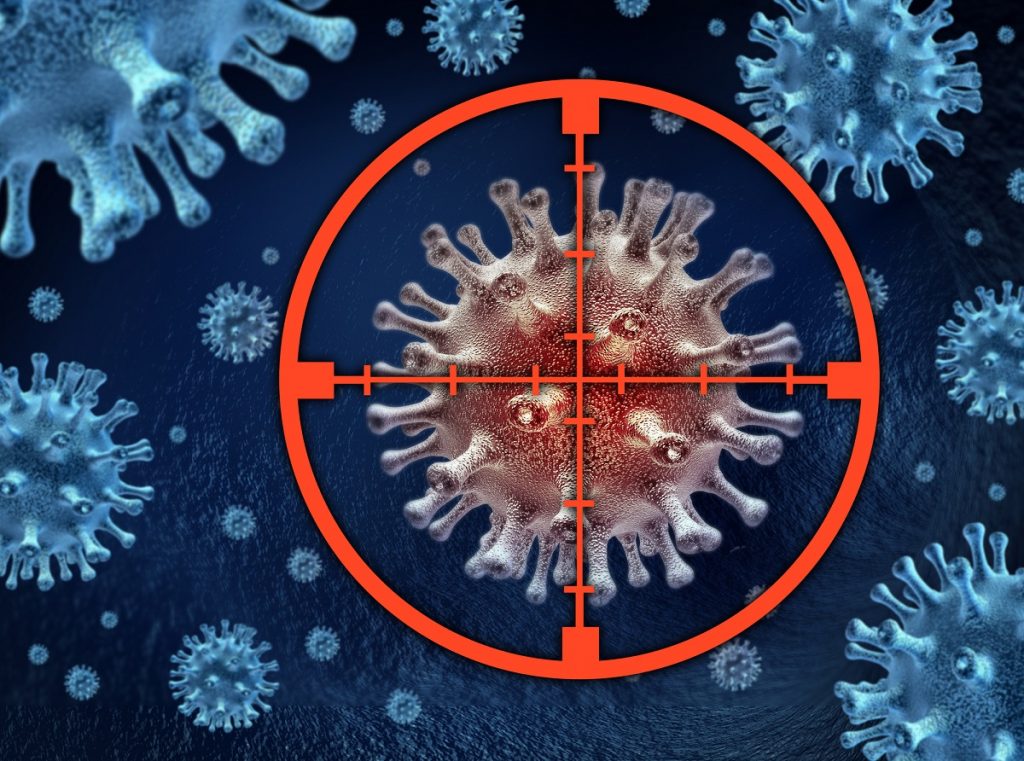An Israeli biotechnology company claimed this week that its scientists developed a cure for cancer and would make it available in a year’s time, drawing international attention – and a healthy dose of skepticism.
The chairman of the board of Accelerated Evolution Biotechnologies Ltd. (AEBi), founded in 2000 from ITEK Weizmann technology incubator, told the Jerusalem Post that the company’s “cancer cure will be effective from day one, will last a duration of a few weeks and will have no or minimal side-effects at a much lower cost than most other treatments on the market.”
“We believe we will offer in a year’s time a complete cure for cancer,” Dan Aridor told the Israeli daily, adding “our solution will be both generic and personal.”
SEE ALSO: 7 Recent Israeli Breakthroughs In Cancer Research And Detection
The new development was picked up by numerous media publications in Israel and across the world. Meanwhile, AEBi offered no evidence of its findings and claimed not to have the funds to publish any in peer-reviewed scientific journals.
But the company says its developed treatment, MuTaTo (multi-target toxin), is a new, multi-pronged attack on cancer cells using peptides that showed “consistent and repeatable” results in the “first exploratory mice experiment, which inhibited human cancer cell growth and had no effect at all on healthy mice cells, in addition to several in-vitro trials,” the Jerusalem Post reported.
Red flags everywhere
Dr. Victoria Forster, a cancer research scientist and postdoctoral fellow at The Hospital for Sick Children (SickKids) in Toronto, Canada, wrote in a Forbes piece that the first “red flag” for her was a claim by AEBi’s CEO Dr. Ilan Morad on what the treatment could achieve.
“Instead of attacking receptors one at a time, we attack receptors three at a time – not even cancer can mutate three receptors at the same time,” Morad had told the Jerusalem Post.

A chemotherapy treatment room. Deposit Photos
“This is categorically untrue,” wrote Forster. “Cancers can have anywhere from one to tens of thousands of DNA mutations in their genomes, many of these being the ‘receptors’ Morad vaguely refers to. A key principle of using multiple chemotherapy agents at once is to go after cancer cells by several different routes to reduce the chance that they will become resistant. Still, many cancers do become resistant to these treatment protocols, so Morad’s logic here is extremely shaky.”
Furthermore, the Israeli company’s claim that its treatment will work for all types of cancers is also a “huge red flag,” she said.
“There are broadly over 200 different types of cancer and within those, multiple other subtypes. For there to be one, universal ‘cancer cure’ that overcomes all of these differences is highly unlikely,” Forster charged.
An Australian cancer research scientist went a step further, accusing the company of “selling unicorns” and calling for it to be hung out “to dry for making such cruel and misleading claims.”
In a woke reference to popular culture, cancer biologist Dr. Darren Saunders said AEBi’s treatment was “basically the Fyre Festival of cancer cures.” The Fyre Festival was widely promoted as “luxury music festival” set to take place in the Bahamas in 2017 and was soon exposed as a fraud. There are currently two documentaries about the saga.
‘Irresponsible and even cruel’ claims
Starker warnings and outright condemnations were not far behind.
Dr. J. Leonard Lichtenfeld, the deputy chief medical officer for the national office of the American Cancer Society, wrote in a blog post titled “A Cure For Cancer? Not So Fast” that while the Israeli scientists “worked with an interesting approach to interfering with the ability of cancer cells to function,” they provided very limited information that has “not been published in the scientific literature where it would be subject to review, support and/or criticism from knowledgeable peers.”
Sign up for our free weekly newsletter
SubscribeHe further noted that AEBi’s initial experiment on mice in clinical trials “is not a well-established program of experiments which could better define how this works—and may not work—as it moves from the laboratory bench to the clinic.”
“The gap from a successful mouse experiment to effective, beneficial application of exciting laboratory concepts to helping cancer patients at the bedside is, in fact, a long and treacherous journey, filled with unforeseen and unanticipated obstacles,” Lichtenfeld wrote, pouring cold water on the claim that the treatment would be available in a year.

Cancer Cells. Photo via DepositPhotos
Dr. Benjamin Neel, professor of medicine at NYU School of Medicine and the director of the Laura and Isaac Perlmutter Cancer Center at NYU Langone Health, told ABC11 News that “although one can always find something new, it’s highly unlikely that a company has developed something that is going to cure all cancers within a year. I mean, it’s just not plausible.”
“They haven’t provided any details about the approach. They haven’t published the data. And yet they make the extraordinary, and in my option, highly irresponsible and even cruel (to cancer patients) that they will cure cancer in a year,” Neel told Forbes.
“One should never say never in science, but I think it is quite unlikely that we will see a single magic bullet for cancer. We don’t have single magic bullets for infectious disease – different infections require different antibiotics, and even then, antibiotic resistance develops. Cancer is not a single disease – its multiple diseases, each caused by different combinations of genetic changes within different types of target cells. We already know how to cure many forms of cancer, and notably, all of these cures are different,” he said.
SEE ALSO: Israeli Researchers Say They Can Reprogram Cancer Cells Back To Their Pre-Cancer State
As healthcare professionals and researchers, hearing about “new cancer cures” with little to no evidence and “fielding questions about everything from baking soda to lemons curing cancer, often from desperate cancer patients or their families,” is not a new scenario, Forster wrote. She said it was “heartbreaking” to watch cancer patients turning to crowdfunding “to raise money for these unproven cancer cures.”
“Our hopes are always on the side of new breakthroughs in the diagnosis and treatment of cancer,” wrote Lichtenfeld, but there should also be much caution.
Morad, meanwhile, defended the company in a Times of Israel interview, saying the firm wanted to focus on research rather than financing publication of its findings.
“If we were a big company with a lot of funds, that [publication] would be the first thing we would do,” he said. “If I have $100,000 what do I spend it on? Advancing the research and finding more and more targeting peptides, or doing many experiments to write an article? What would you do, if you had to choose?”
Blue-and-white cancer research
Israeli scientists and researchers have been at the forefront of extensive studies on cancer and cancer treatment over the past several decades.
SEE ALSO: Breakthrough Cancer Therapy Developed By Israeli MedTech Startup Heads For Clinical Trials
Israeli universities, medical centers, hospitals, and labs have taken the lead in developing innovative care plans and undertaking sophisticated research to help advance understanding and knowledge of cancer, for which there is no known cure.
Numerous Israeli biotech startups too have been on the cutting-edge of innovative solutions for early detection, clinical pathology systems, and therapies.
Related posts

Editors’ & Readers’ Choice: 10 Favorite NoCamels Articles

Forward Facing: What Does The Future Hold For Israeli High-Tech?

Impact Innovation: Israeli Startups That Could Shape Our Future




Facebook comments